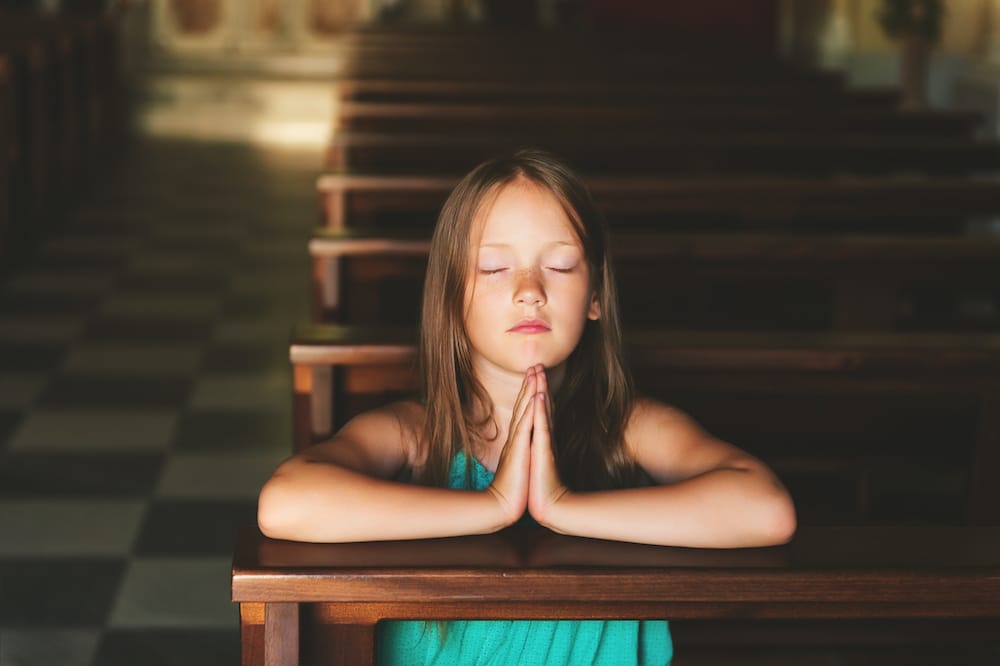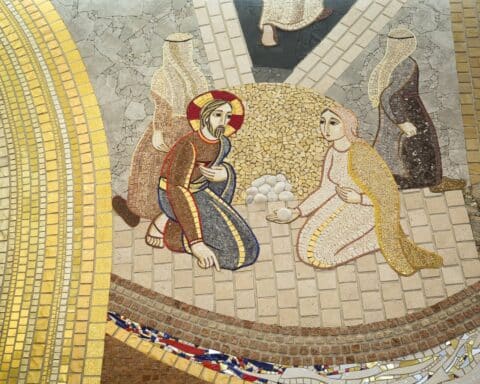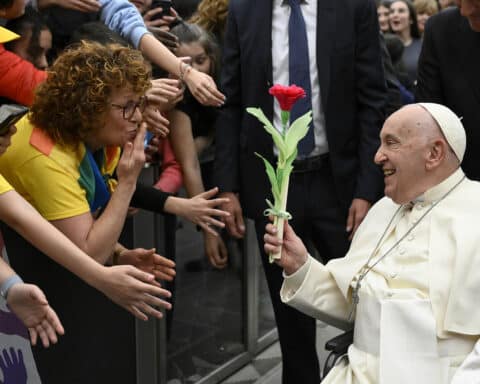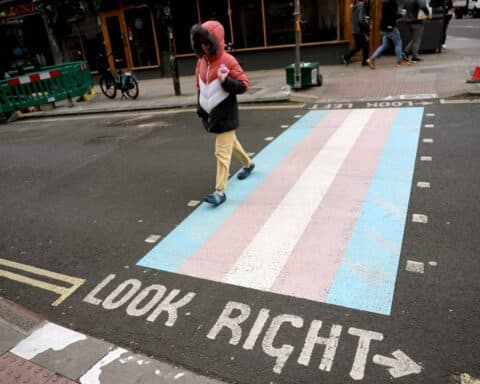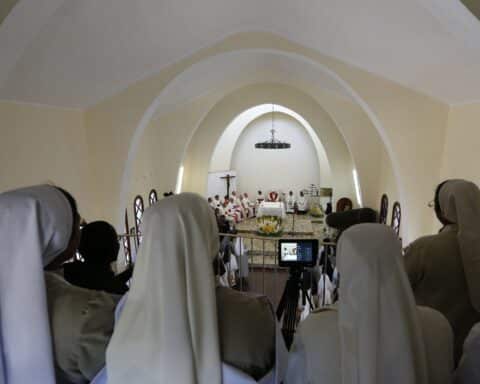I made my first confession in a parking lot. It was the early ’80s, and that was how they arranged things — lined up in a parking lot across from the church, with a couple of folding chairs set up on the hot asphalt, parents clustered around just out of hearing distance.
Everything was done as casually as possible at this time, as part of an overall effort to demystify and desanctify the Church. I also remember them painting over the midnight blue sanctuary with the gold stars, and making it beige instead.
As foolish and unpleasant as their likely motivation was, it wasn’t actually a terrible system for first confession. I thought of it the other day when Chris Damian asked on Twitter: “How can Catholic parents responsibly send children to confession, knowing that for half of the last century about 1 in 25 priests was a sexual abuser? And that the Church structured itself to hide this?”
You can quibble about his numbers, which he says are based on the John Jay Report; but I believe it was a good-faith question.
It is undeniable that some priests, just like some men in every profession, are sexual abusers, and that they use their spiritual authority and the privacy of the confessional to prey on vulnerable people.
So here’s my answer:
I thought first of what I taught a class of 8-year-olds when I led a confession preparation class. We learned four basic things about safety in general and not just confession. It occurred to me that these rules didn’t change for older kids. They just need elaboration.
One: My body is made by God, and I’m in charge of it. I can say, “No thank you,” if I don’t want to hug, kiss or touch someone. I can give a high five, shake hands or blow a kiss instead. (In class, we practiced this dialogue. Saying the words ahead of time is helpful.)
For older kids: No one — not a priest, not a boyfriend or girlfriend, not a spouse — has the right to demand physical contact that makes you afraid or uncomfortable, or that feels inappropriate. No one who cares about you will pressure you into physical contact you don’t want, either abruptly or over time.
Two: I have a safety network of adults I can trust, and I can tell them if I am worried or scared about anything, and they will believe me. (In class, we traced our hands and wrote five names on our fingers.)
Older kids: Think about who seems solid and trustworthy. Not cool or awesome, but actually dependable and likely to help. Parents, don’t be offended if it’s not you right now.
Three: I should never keep secrets that make me feel bad or uncomfortable. If someone tells me a secret that makes me feel weird or unsafe, I should tell a safe adult right away. No one should ask me to keep a secret from my parents or from my safe adults. (We discussed the difference between secrets and surprises.)
For older kids: No one is unreportable. It is not uncharitable or gossipy or unforgiving to tell someone else that a priest has done or said something that feels “off.” Abuse thrives on secrecy and dies in sunlight. If a perpetrator is harmed by exposure, that is his fault, not the fault of the one who told the truth.
Four: My swimsuit covers my private parts. Sometimes parents or health care workers may need to help me with my private parts, to keep them clean or if I get hurt, but, otherwise, no one may touch them, and if it’s a doctor, a safe adult will stay with me. No one can make me touch or talk about their private parts. No one should show me pictures of or talk about private parts. If any of these things happens, I should tell a safe adult right away.
More for older kids:
They will need to know how to confess the inevitable sexual sins that come with normal human development: “unchaste thoughts that I held onto on purpose,” “unchaste acts with my boyfriend/girlfriend/myself,” “watching porn” or “pressuring someone into unchaste behavior” will probably cover most of it. They can also say, “this is all the information I think I need to share” if they’ve been honest but the priest asks for an uncomfortable amount of clarification.
Make sure they know the seal of confession only binds the priest, and a penitent is free to talk about their own confession. This is one of many reasons it’s healthy to normalize confession as part of the family culture, rather than treating it as an off-limits topic of conversation. If something iffy does happen, a kid will be more likely to ask you about it if confession is something that comes up in conversation anyway.
Try to go to a priest you know. This doesn’t guarantee safety. It’s common for abusers to have a crowd of defenders who support him, and it’s common for abusers to deliberately build up trust so that they can gradually introduce predatory behavior without causing alarm. But if what you’re worried about is uncomfortable misunderstandings or weird vibes, you can avoid this by getting to a priest who you know by experience will be kind and pastoral, or brisk and businesslike.
And finally: Keeping the penitent visible will certainly keep them physically safer. It doesn’t have to be folding chairs in a parking lot. I love the old-fashioned confessionals where the priest is sequestered in a central box and the penitents get kneelers on either side, with partitions to give them reasonable privacy. Many churches have also put windows on their confessionals, which allows for visibility plus soundproofing.
Note: Most of the above is useful for kids far beyond the confessional. It’s applicable if they see a therapist or a doctor, or if they spend one-on-one time with a coach or a teacher, or if they go to a public restroom, or if they sleep over at someone’s house, or if they babysit and get a ride home from someone’s dad. These are all situations we routinely send our children into, even knowing that there is a chance they will encounter a predator. No encounter in the fallen world is risk-free.
But as Catholics, we believe that confession is a great gift from Christ where we can meet him and he will relieve our burdens and strengthen us. Most priests simply want to give people this gift. It is not necessary either to desanctify the sacrament or to frighten kids and make confession seem like a risky, terrifying place. But we most certainly can make it safer by going frequently ourselves and modeling what a normal experience is like, and by assuring kids of their own sanctity, by arming them with the words to speak confidently about their own experience, and by surrounding them with security.
Simcha Fisher is an award-winning columnist who regularly contributes to America magazine, Parable magazine and The Catholic Weekly. She lives with her husband and eight of their 10 children and several animals in a surprisingly small house in New Hampshire.

